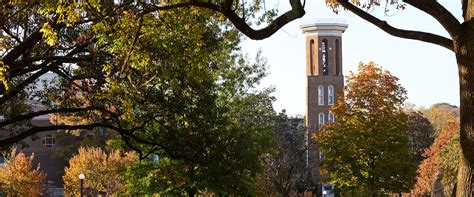Introduction

Belmont University, nestled in the vibrant city of Nashville, Tennessee, is a renowned institution offering a transformative educational experience. Embarking on a visit to this prestigious university is an opportunity to discover its exceptional academics, vibrant campus life, and picturesque surroundings. This comprehensive guide will equip you with all the essential information and insights you need to plan a memorable and informative Belmont University visit.
Before Your Visit
1. Determine Your Purpose and Interests:
- Academic Exploration: Explore academic programs, meet with faculty, and attend classes to gain firsthand insights into Belmont’s educational offerings.
- Campus Experience: Immerse yourself in campus life by participating in student activities, dining at the campus eateries, and exploring the state-of-the-art facilities.
- Admission Inquiry: Engage with admissions counselors to discuss application requirements, scholarship opportunities, and the admission process.
2. Schedule Your Visit:
- Website: Book a guided tour or schedule an individual visit through the Belmont University website.
- Phone: Call the Office of Admissions at (615) 460-6600 to arrange a personalized visit.
- Email: Send an email to [email protected] to request a visit and receive additional information.
3. Prepare Materials:
- Academic Transcript: If you are exploring academic programs, bring your official transcript for review.
- Questions: Jot down a list of questions you have about Belmont University, its programs, and campus life.
- Comfortable Clothing and Footwear: Dress comfortably for walking and exploring the campus.
During Your Visit
1. Guided Tour:
- Embark on a guided tour led by a current student to get a comprehensive overview of the campus, academic buildings, and student生活区.
- Ask questions and gather insights about the university’s history, culture, and academic offerings.
2. Meetings with Faculty and Staff:
- Schedule appointments with faculty members in your areas of interest to discuss research opportunities, program requirements, and career paths.
- Meet with admissions counselors to receive personalized guidance on the admission process and explore scholarship opportunities.
3. Campus Exploration:
- Visit the library, dining halls, and student centers to experience the vibrant campus life.
- Attend a student organization meeting or athletic event to get a glimpse of campus involvement.
4. Residential Life:
- If applicable, schedule a tour of the residential facilities to explore housing options and learn about campus living.
- Attend a residential life orientation session to gain insights into student life and community building.
5. Cultural Immersion:
- Explore the Belmont Mansion, a historic landmark on campus, and learn about its significance.
- Attend a performance at the Curb Event Center or the Johnson Center for the Arts to experience the university’s commitment to the arts.
After Your Visit
1. Reflection and Follow-Up:
- Take time to reflect on your visit and identify the aspects that resonated with you the most.
- Follow up with the faculty and staff you met to express your appreciation and inquire about further information.
- Share your experience with family, friends, and potential recommenders.
2. Application and Decision:
- If you are interested in applying to Belmont University, gather the required materials and submit your application on time.
- After submitting your application, track its status and respond promptly to any requests for additional information.
- Carefully consider the university’s admission decision and make an informed choice based on your goals and aspirations.
Common Mistakes to Avoid
- Lack of Preparation: Not gathering information or scheduling your visit in advance can limit your experience.
- Passive Engagement: Simply attending a guided tour without actively participating and asking questions is a missed opportunity.
- Insufficient Exploration: Failing to explore beyond the main academic buildings and tour route can hinder your understanding of campus life.
- Incomplete Follow-Up: Neglecting to follow up with faculty and staff after your visit can weaken your connection to the university.
- Impulsivity: Making an admission decision solely based on superficial impressions can lead to regret.
Tables
Table 1: Campus Statistics
| Statistic | Value |
|---|---|
| Undergraduate Enrollment | 7,776 |
| Graduate Enrollment | 2,254 |
| Faculty-to-Student Ratio | 1:14 |
| Academic Programs | 90+ undergraduate; 30+ graduate |
| Campus Size | 124 acres |
Table 2: Academic Program Highlights
| Program | College | Features |
|---|---|---|
| Nursing | College of Health Sciences | Ranked among the top 100 nursing schools in the nation (U.S. News & World Report) |
| Business Administration | Mike Curb College of Entertainment & Music Business | AACSB-accredited programs, emphasis on experiential learning |
| Music | Curb College of Entertainment & Music Business | Top-ranked music business program in the nation (Billboard) |
| Creative Writing | College of Liberal Arts & Social Sciences | Renowned faculty, literary magazine, and writing workshops |
| Education | College of Education | Nationally recognized programs, field experience opportunities |
Table 3: Campus Amenities
| Amenity | Description |
|---|---|
| Library | Over 600,000 volumes, 24-hour study spaces |
| Dining Halls | Variety of dining options, including all-you-care-to-eat buffets |
| Fitness Center | State-of-the-art equipment, fitness classes |
| Athletics | NCAA Division I athletics, state-of-the-art athletic facilities |
| Student Organizations | Over 150 student organizations, clubs, and honor societies |
Table 4: Admission Statistics
| Statistic | Value |
|---|---|
| Acceptance Rate | 63% |
| Average GPA | 3.7 |
| Average ACT Score | 28 |
| Average SAT Score | 1290 |
| Early Decision Acceptance Rate | 75% |
